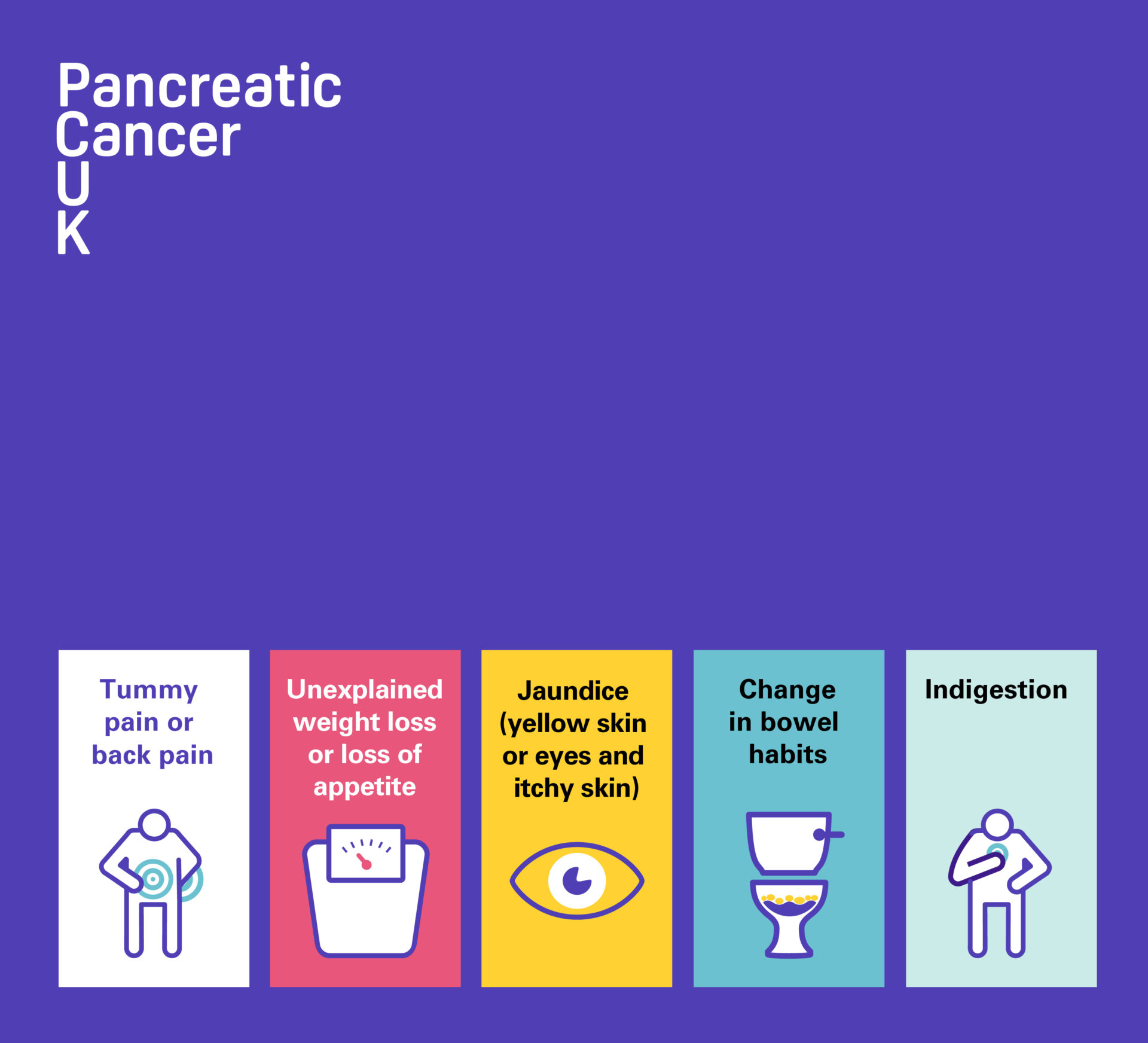

A third of people would wait three months or more to seek GP’s help with symptoms of pancreatic cancer
Pancreatic cancer is the deadliest common cancer.
Nearly a third of people in the UK (28%) would wait three months or more to seek help from their GP if they had potential symptoms of pancreatic cancer.
The shocking figure – at least three times longer than recommended – is revealed in new polling for Pancreatic Cancer UK released today to coincide with the beginning of Pancreatic Cancer Awareness Month.
The pandemic is actively deterring people from contacting their doctor, with 31% saying they would delay seeking help for longer than usual. Of those less likely to seek help, half (51%) did not want to be a burden to the NHS, while a quarter (25%) were worried about catching COVID-19.
“Pancreatic cancer has not gone away because of COVID-19 and I would urge anyone with persistent, unexplained symptoms to use the NHS."
We are extremely concerned by the findings from the new poll (undertaken by Savanta ComRes with more than 2,000 people across the UK) because it suggests the public would not know to take the symptoms of pancreatic cancer seriously, despite it having the lowest survival rate of any common cancer in the UK.
Tragically, more than half of people with pancreatic cancer die within three months of diagnosis – an appalling statistic that has barely improved in 50 years.
The disease’s vague symptoms mean it often goes undetected until after it has spread to other areas of the body. No screening or early detection tests exist to help doctors diagnose the disease. Tragically, around 80% of people are diagnosed is at an advanced stage when it is too late for lifesaving treatment.
Early diagnosis is essential to give people the best chance of survival. Pancreatic Cancer UK recommend that anyone experiencing one or more of the most common symptoms – back pain, indigestion, tummy pain and weight-loss – for more than four weeks should contact their GP.
Anyone with jaundice (yellowing of the eyes or skin) should immediately go to A&E. Jaundice is the ‘red flag’ symptom for pancreatic cancer, but worryingly, nearly a quarter (22%) of those polled said they were not confident that they could recognise it.
GPs who suspect the disease can refer patients for ultrasound, CT, or MRI scans. However nearly half of all pancreatic cancer patients are currently diagnosed via an emergency (such as through visiting A&E). The impact is significant: one-year survival for patients diagnosed through a GP referral is three times higher.
“It began with a mild stomach and back ache and then she had a slight change in her bowel habits"
Like so many of our supporters, Chelsea Bennett is acutely aware of the heartbreak caused by the disease. Her mum, Joanne, first began experiencing symptoms of pancreatic cancer in February 2020 at the beginning of the pandemic. She saw a GP but when things didn’t improve, and with the NHS under pressure, she booked a private CT Scan. She was subsequently told she had stage four pancreatic cancer and that nothing could be done to save her life. Joanne received palliative chemotherapy and was given between three and six months to live. She died at home in April this year.
Chelsea, 27, said: “It began with a mild stomach and back ache and then she had a slight change in her bowel habits. She thought ‘maybe it’s because of my age’ because of the onset of the menopause. Mum thought it was just one of those things. She was still living a normal life and doing normal things.”
“My mum was a very proud lady. Even a week before she passed away, she was still painting her nails. During that time, I lived between two houses, I would pick the children up from school and later go to my mum’s. I would spend all night at my mum’s. Being an only child, there was nobody else to share that burden with.”
“Very often, I looked at her and wondered how this had happened. Pancreatic cancer is something we all need to be aware of because it is such a deadly cancer.”
Pancreatic Cancer UK is urging people to find out more about the disease, and the impact it can have on people diagnosed and their families. It is calling on the public to spread the word to their friends, family and colleagues.
Diana Jupp, CEO of Pancreatic Cancer UK, said:
“It is hugely worrying to hear that so many people would put off seeking help for so long. Pancreatic cancer has not gone away because of COVID-19 and I would urge anyone with persistent, unexplained symptoms to use the NHS.
“There is no time to wait with pancreatic cancer. Thousands of people a year, still reeling from hearing the word cancer, are told it’s too late, that nothing can be done for them. That most stop.
“We do not want people to panic if they have some or all of these symptoms, because most people who do will not have pancreatic cancer. But it is absolutely vital that people learn more about this disease, talk to their loved ones, and help us end the culture of silence around the deadliest common cancer in the UK.”

